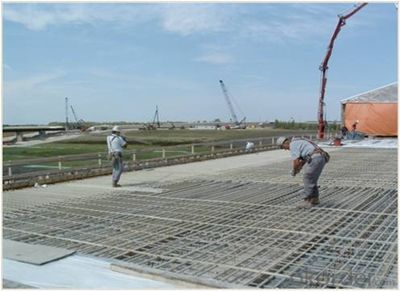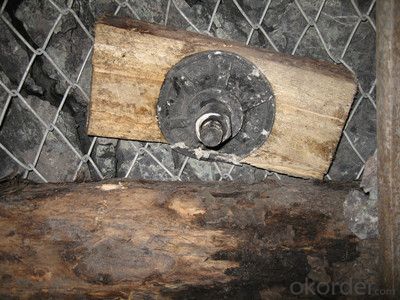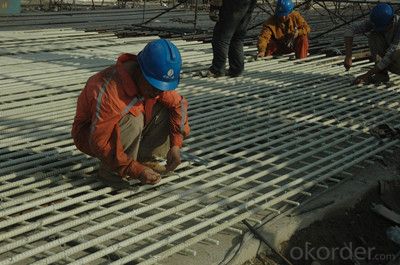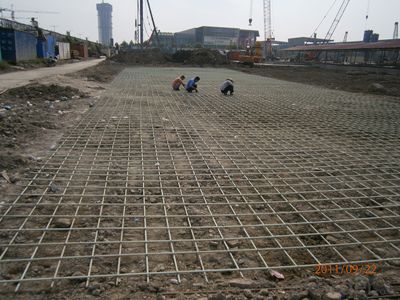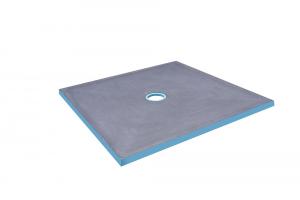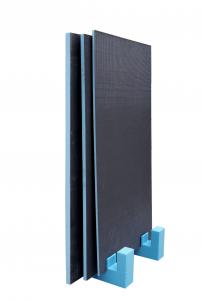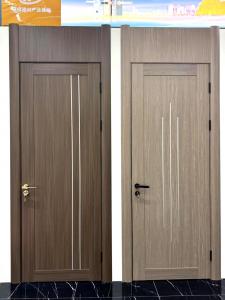Loading Port:Shanghai
Payment Terms:TT or LC
Min Order Qty:1000 m
Supply Capability:500000M m/month
Detailed Introduction of FRP Rebar for Coast Protection
Reinforced Concrete is a common building material for construction of facilities and structures. While concrete has high compressive strength, it has limited tensile strength. To overcome these tensile limitations, reinforcing bars are used in the tension side of concrete structures. Steel rebar has historically been used as an effective and cost-efficient concrete reinforcement. However, it is susceptible to oxidation (rust) when exposed to chlorides and certain other aggressive chemicals. Examples of such exposure include coastal areas, sites where road salts are used for deicing, and sites where aggressive chemicals and ground conditions exist. Where corrosion of rebar occurs, the resulting products have a significantly larger volume than the original bar. The concrete cannot sustain the tensile load developed from this volume increase, and eventually cracks and spalls, leading to further deterioration of the steel. The combination of ongoing deterioration and loss of reinforcement properties ultimately requires potentially significant and expensive outlays for repair and maintenance, and possibly the endangerment of the structure itself.
Main Application of FRP Rebar
Concrete Exposed to Deicing Salts: Parking structures; bridge decks; Jersey barriers; parapets; curbs; retaining walls and foundations; roads and slabs on grade.
Structures Built in or Close to Sea Water: Quays; retaining wall; piers; jetties; caissons; decks; piles; bulkheads; floating structures; canals; roads and buildings; offshore platforms; swimming pools and aquariums.
Applications Subjected to Other Corrosive Agents: Wastewater treatment plants; petrochemical plants; pulp/paper mills; liquid gas plants; pipelines / tanks for fossil fuel; cooling towers; chimneys; mining operations of various types; nuclear power and dump plants.
Applications Requiring Low Electric Conductivity or Electromagnetic Neutrality: Aluminum and copper smelting plants; manholes for electrical and telephone communication equipment; bases for transmission / telecommunication towers; airport control towers; magnetic resonance imaging in hospitals; toll road sensing arrays and collection booths, railroad crossing sites, and specialized military structures.
Tunneling / Boring Applications Requiring Reinforcement of Temporary Concrete Structures: Structures including mining walls; underground rapid transit structures and underground vertical shafts.
Weight Sensitive Structures: Concrete construction in areas of poor load bearing soil conditions, remote geographical locations, sensitive environmental areas, or active seismic sites posing special issues that the use of lightweight reinforcement will solve.
Thermally Sensitive Applications: Apartment patio decks; thermally insulated concrete housing and basements including ICF construction; thermally heated floors and conditioning rooms.
Main Features of FRP Rebars
Corrosion Resistance: will not rust, and is impervious to the action of salt ions, chemicals, and the alkalinity inherent in concrete.
Lightweight: weighs approximately one-quarter the weight of an equivalent size steel bar, offering significant savings in both placement and use.
Electromagnetic Neutrality: contains no metal, does not conduct magnetic fields, and will not interfere with the operation of sensitive electronic devices such as medical MRI units or electronic testing devices.
Thermal Insulator: highly efficient in resisting heat transfer, such as from building exteriors to interiors; will not conduct electricity.
Bent Rebar, 50 GPa (available by special order) | |||||||||
Property | Units | #2 | #3 | #4 | #5 | #6 | #7 | #8 | #10 |
Minimum Tensile Strength (Straight Portion) | MPa | 1022 | 1019 | 1001 | 1028 | 1005 | 992 | ||
ksi | 148 | 148 | 145 | 149 | 146 | 144 | |||
Nominal Tensile Modulus (Straight Portion) | GPa | 50 | 50 | 50 | 50 | 50 | 50 | ||
ksi | 7246 | 7246 | 7246 | 7246 | 7246 | 7246 | |||
Minimum Tensile Strength (Bent Portion) | MPa | 460 | 459 | 450 | 463 | 452 | 446 | ||
ksi | 67 | 66 | 65 | 67 | 66 | 65 | |||
Standard Fiberglass Rebar (stocked in warehouse) | |||||||||
Property | Units | #2 | #3 | #4 | #5 | #6 | #7 | #8 | #10 |
Minimum Guaranteed Design Tensile Strength | MPa | 990 | 1100 | 1140 | 1130 | 1110 | 1100 | 800 | |
ksi | 143 | 159 | 165 | 164 | 161 | 159 | 116 | ||
Nominal Tensile Modulus | GPa | 52.5 | 52.5 | 52.5 | 52.5 | 52.5 | 52.5 | 52.5 | |
ksi | 7609 | 7609 | 7609 | 7609 | 7609 | 7609 | 7609 | ||
Tensile Strain | % | 1.89 | 2.10 | 2.17 | 2.15 | 2.11 | 2.10 | 1.52 | |
Low-Modulus (LM) Fiberglass Rebar (stocked in warehouse) | |||||||||
Property | Units | #2 | #3 | #4 | #5 | #6 | #7 | #8 | #10 |
Minimum Guaranteed Design Tensile Strength | MPa | 880 | 1000 | 940 | 940 | 960 | |||
ksi | 128 | 145 | 136 | 136 | 139 | ||||
Nominal Tensile Modulus | GPa | 42.5 | 42.5 | 42.5 | 42.5 | 42.5 | |||
ksi | 6159 | 6159 | 6159 | 6159 | 6159 | ||||
Tensile Strain | % | 2.07 | 2.35 | 2.21 | 2.21 | 2.26 | |||
High-Modulus (HM) Fiberglass Rebar (available by special order) | |||||||||
Property | Units | #2 | #3 | #4 | #5 | #6 | #7 | #8 | #10 |
Minimum Guaranteed Design Tensile Strength | MPa | 1372 | 1312 | 1184 | 1105 | 1059 | 1000 | 1093 | |
ksi | 199 | 190 | 172 | 160 | 153 | 145 | 158 | ||
Nominal Tensile Modulus | GPa | 65.1 | 65.6 | 62.6 | 64.7 | 62.6 | 66.4 | 65.1 | |
ksi | 9435 | 9507 | 9072 | 9377 | 9072 | 9623 | 9435 | ||
Tensile Strain | % | 2.11 | 2.00 | 1.89 | 1.71 | 1.69 | 1.51 | 1.68 | |
Carbon Rebar (available by special order) | |||||||||
Property | Units | #2 | #3 | #4 | #5 | #6 | #7 | #8 | #10 |
Minimum Guaranteed Design Tensile Strength | MPa | 1356 | 1431 | 1765 | 1532 | ||||
ksi | 196.6 | 207.5 | 255.9 | 222.1 | |||||
Nominal Tensile Modulus | GPa | 127 | 120 | 144 | 140 | ||||
ksi | 18415 | 17400 | 20880 | 20300 | |||||
Tensile Strain | |||||||||
FAQ:
1, why choose us?
We are stated owned company, more reliable and more safe for international business.
2, sample is available?
Yes, Sample is ready to provide for testing.
3, provide the installation instruction?
After the delivery of the order, an instruction of installation will be loaded together with the cago
